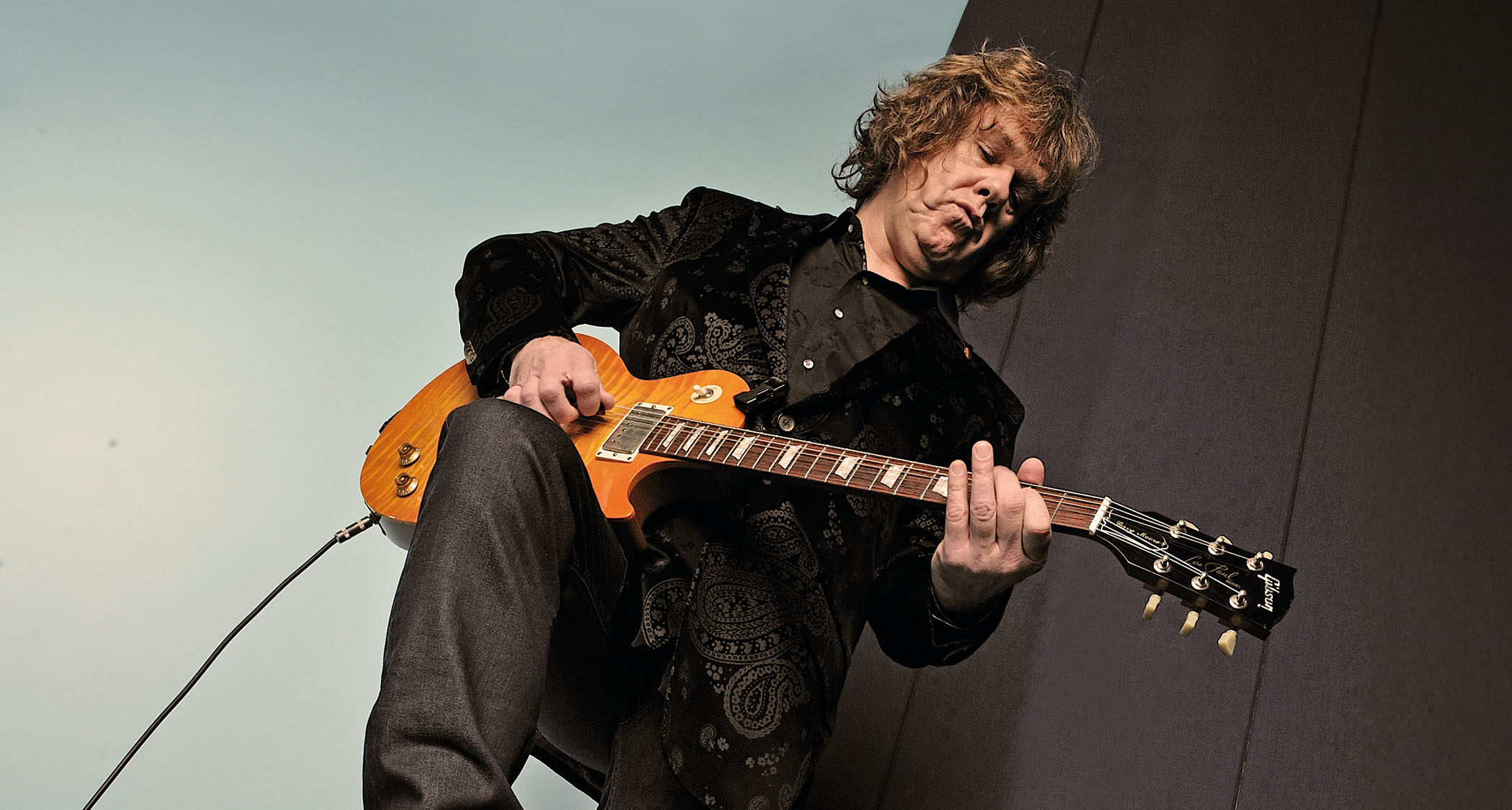Jimmie Vaughan: “There’s nothing as cool as a Stratocaster. It’s like the coolest car you’ve ever seen”
The blues stalwart takes a trip down memory lane to talk about the day the blues came calling, the genius of his younger brother, and swapping wah pedals with Jimi Hendrix
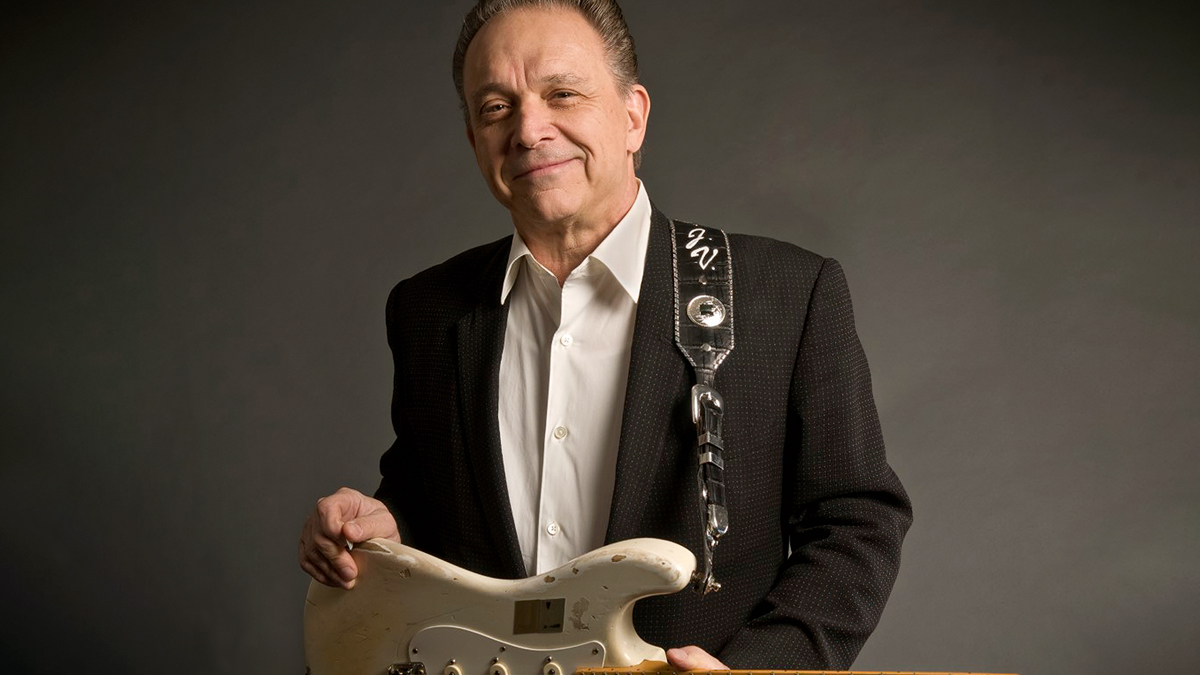
All the latest guitar news, interviews, lessons, reviews, deals and more, direct to your inbox!
You are now subscribed
Your newsletter sign-up was successful
He’s the Texas tornado who braved the honky tonks, traded gear with Hendrix and cut heads with his blues heroes.
As Jimmie Vaughan releases a new career-spanning boxset, we take a walk with the 70-year-old through first guitars, broken bones and the agony of losing his kid brother...
The blues came calling
“I was a total blues nut. I had all the Chess records. I’d save my lunch money at school and go buy Chuck Berry’s new hit. Magic Sam, Buddy Guy, Freddie King – I had all those records.
“We had great radio stations at the time, too. Like, there was a station in Dallas called WRR, and they would play blues from 10 till midnight. Then there was Wolfman Jack, WLAC out of Nashville… and that wasn’t even the local stations. Popular music was amazing back then.”
Lucky break
“This friend at school said, ‘If you want a girlfriend, you’re gonna have to play football.’ I really didn’t want to. I remember, the football coach said to me, ‘Okay, run up for a pass and let’s see what you can do.’ I caught the pass, the other players tackled me, all piled onto me and broke my collarbone.
“So for the next three months, I didn’t have to go to school. So I was glad about that. My father said, ‘I don’t know what we’re gonna do with you, so, here, just take this guitar and stay out of trouble.’ And I’ve been playing ever since.”
Four play
“My first guitar was an acoustic with four strings. I finally got all six then I started learning Chuck Berry, Jimmy Reed, things like that. Everybody had to be able to play Hide Away by Freddie King. Everybody did that song. The hillbillies did it, the country guys did it, the black radio stations played it. Learning Hide Away was just something you had to do.”
All the latest guitar news, interviews, lessons, reviews, deals and more, direct to your inbox!
Home schooling
“When I started out, there was guitar players everywhere. My father was an asbestos worker and a lot of musicians did that job because it was easy to come back to it if you needed money. So they would come over to our house, play dominoes, bring their wives, and there was a couple of guys who’d sit in the living room and play guitar, everything from country and western to blues and rock ’n’ roll.
“There was one guy named Leonard: he had a big blonde Gibson with his name in the neck, in pearl. He’d show me how to play Jimmy Reed, Chuck Berry, John Lee Hooker. He’d say, ‘Sit down, kid. What do ya like?’ And I’d say, ‘Well, I like blues.’ And he’d go, ‘You mean like this?’ And he’d play Jimmy Reed and everyone. He pretty much laid it out. So that was one of my biggest lessons, just watching that guy.”
Finding God
“American music is where I grew up, but I’ll always remember hearing Eric Clapton when he first came out. A friend of mine called me up and told me his dad had gone to England, and he’d brought back a Clapton record. So my friend played it for me down the phone, and I was like, ‘Wow, that’s like BB King on acid or something.’ It’s always great to play with Eric.
“I still can’t believe that I ever got to meet him, but he’s actually a friend now and it’s a trip. If you had been a hillbilly kid from Fort Worth, you would have never dreamed that you would meet all your heroes and make records and go tour. The whole thing is a fantasy come true.”
Gearing up
“I have a lot of ES-350s. I have several big-box jazz guitars. I have one of those T-Bone Walker blonde Gibsons with three pickups. I love all that stuff. But there’s nothing as cool as a Stratocaster. You don’t know if it’s a rocket ship or a lamp, y’know? It’s like the coolest car you’ve ever seen.
“As for amps, when I started, my dad bought me a Silvertone piggyback with six 10-inch speakers. For the time, it was really big, and I liked that. I was in a band from about 12, and my dad used to take me to my first gigs. He’d put our amps in the back of the pickup and take us down there. Then he would hang out.”
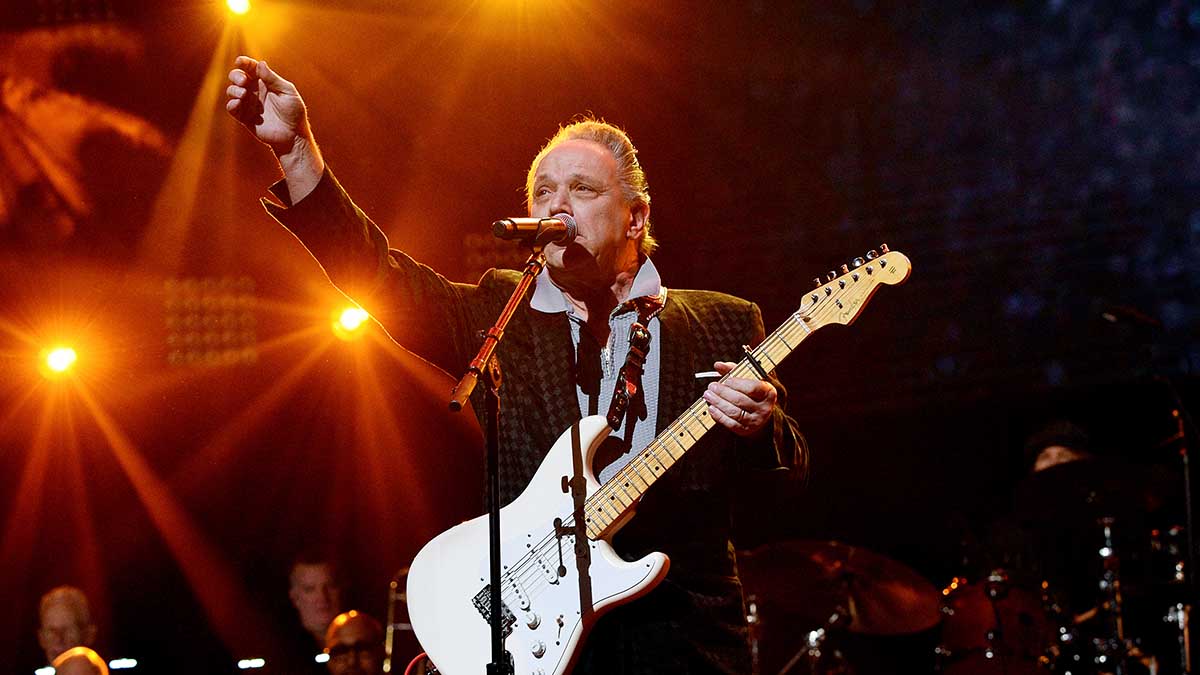
Austin power
“Soon after that, I got into a band called The Chessmen. They were all 21 and I was only 14, but I got in the van. We used to play at fraternity parties over in Austin, and it was incredibly exciting to go out at the weekend and not have to come home.
“Y’know, just to be a kid, feeling like you’re getting away with something. You didn’t even care about if you had a record deal, or a career, or anything like that. I just remember being a young guitar player and how happy I was. My parents didn’t like it at first, but I was making pretty good money.
“When I got into The Chessmen, I got two Superbeetles, then I got some Marshalls, and I would hook up different stuff. Like, I would get a Bassman and hook it up with the Superbeetles. We tried everything.”
Feet first
“What makes a great guitar part? Oh man, that’s a deep question. It’s very mysterious, but it’s like a paragraph. You have a beginning, a middle and an end, and then you have a punchline somewhere.
“It’s like, if you throw a cat off the roof, it’s gonna land on its feet, probably. So you can play a lot of weird stuff in the middle, but you gotta land on your feet somehow. The reason why the blues is so great is because, in the middle, you can do anything you can get away with. So, in that way, it’s almost like jazz.”
Mob rules
“When you’re 18, you don’t know what you’re doing. You’re just feeling everything out. There was a drag between Fort Worth and Dallas called Jacksboro Highway that had about 20 honky tonks in a row. You just went out and played in them, every day.
“But you had to be careful. There was one place where they would let us in and out the back. It was easy to get your ass kicked if you weren’t careful. There’d be a line of motorcycle guys outside…”
In at the deep end
“If you listen back to some of the live stuff from early on, you can tell when you drank too much, or you were playing good, or you were playing calm, or you were playing a little frantic and pushing it. Y’know, all that stuff happens.
“Playing live as a young guitar player is like jumping in a big swimming pool when you don’t know how to swim, right? That’s the way it still is, but you just keep trying.”
Good company
“My band backed up Freddie King in Austin when he came back in the '60s with a new record deal. I played rhythm guitar for him. And I used to play in one place in Dallas where he lived a couple of streets over, and he’d come up on Sundays and sit in, stand there at the bar and watch you play. He was a huge guy, y’know? That was a real trip.
“Another time, we opened for Jimi Hendrix. I had a brand-new Vox wah and his old DeArmond pedal didn’t work very good. It was Saturday night and you couldn’t go to the music store – so he bought my pedal for 50 bucks and gave me his old one. No problem, y’know? And I’ve still got that DeArmond pedal today.”
Taking flight
“I was playing in another band when Kim Wilson came through town on the day we had a jam session. He came and sat in, we talked and I said, ‘Okay, well, here’s my number.’ Next thing, we started a new band called The Fabulous Thunderbirds and I was with them for 15 years.
“We had four people in the band, but Kim sang and played harmonica – so it was really more like a power trio, with bass, guitar and drums. We were doing the trio thing where you can play any song with different arrangements. Our first records didn’t sell much, but we were on the road in a van, playing 300 shows a year, living the dream.”
Find your voice
“As a guitar player, you have to play what you feel. You gotta figure out what that is and you gotta boil it down, right? It’s easy to learn a bunch of licks and throw them all in there, like Scrabble or something. But that doesn’t sound right. You have to make it into something.
“The goal is to talk. It’s really about trying to have your own voice, so they can tell you from the other ones, y’know, and you’re not just copying people. But you can’t really think about all that when you’re playing. You just have to play the guitar, right?”
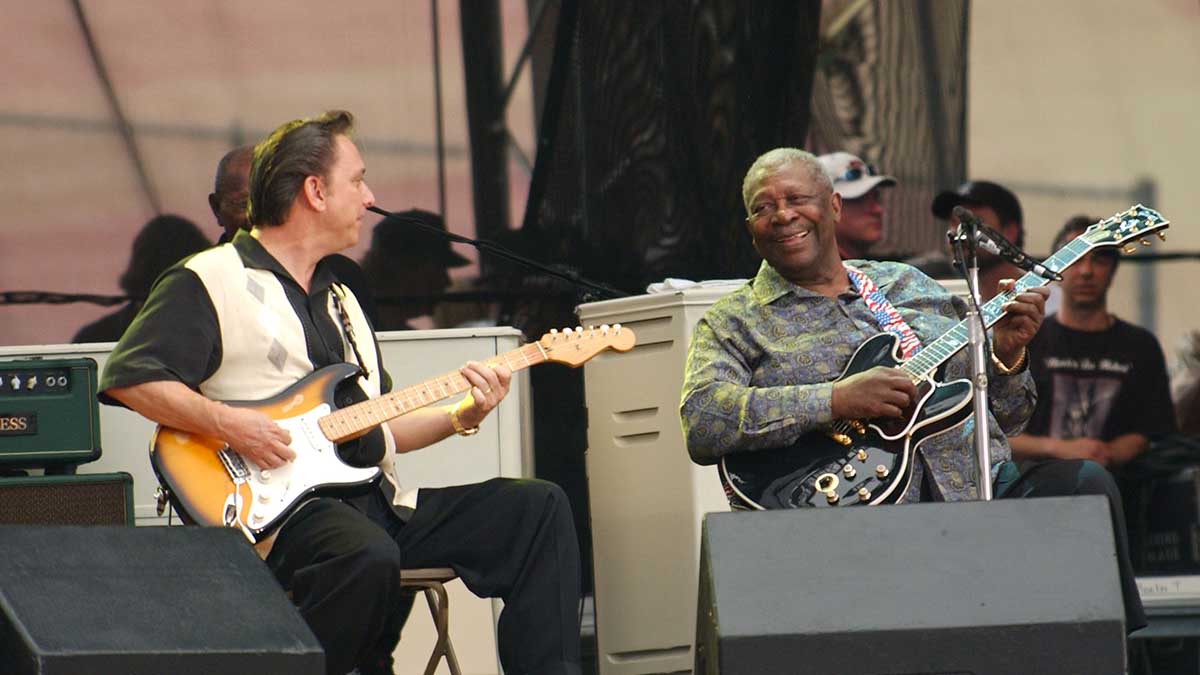
Riding with the king
“I used to get in a cab and ride over to see BB King long before I ever knew him. Later, he was always super nice to me, and very encouraging – all the things that you wouldn’t expect from a great star like that.
“We appeared together in the Blues Brothers 2000 movie, but that wasn’t really my favourite thing. It wasn’t the real deal. It was a spoof, wasn’t it? That doesn’t fall into the serious music category. But it was a good chance to go see a lot of your friends and have a party.”
Brothers in arms
“We have some stuff on the new boxset from the Family Style album that I made with my brother Stevie in 1990. I mean, Stevie was such a huge part of the whole thing. I’m four years older. He was my little brother. When we used to go to school, it was my job to get him there and back.
“It was my job to get him to the bus stop, to get him home and make sure he was okay. I started playing guitar and he watched me learn then I’d put it down and he’d pick it up. He died 31 years ago. What in the world do you say about that?”
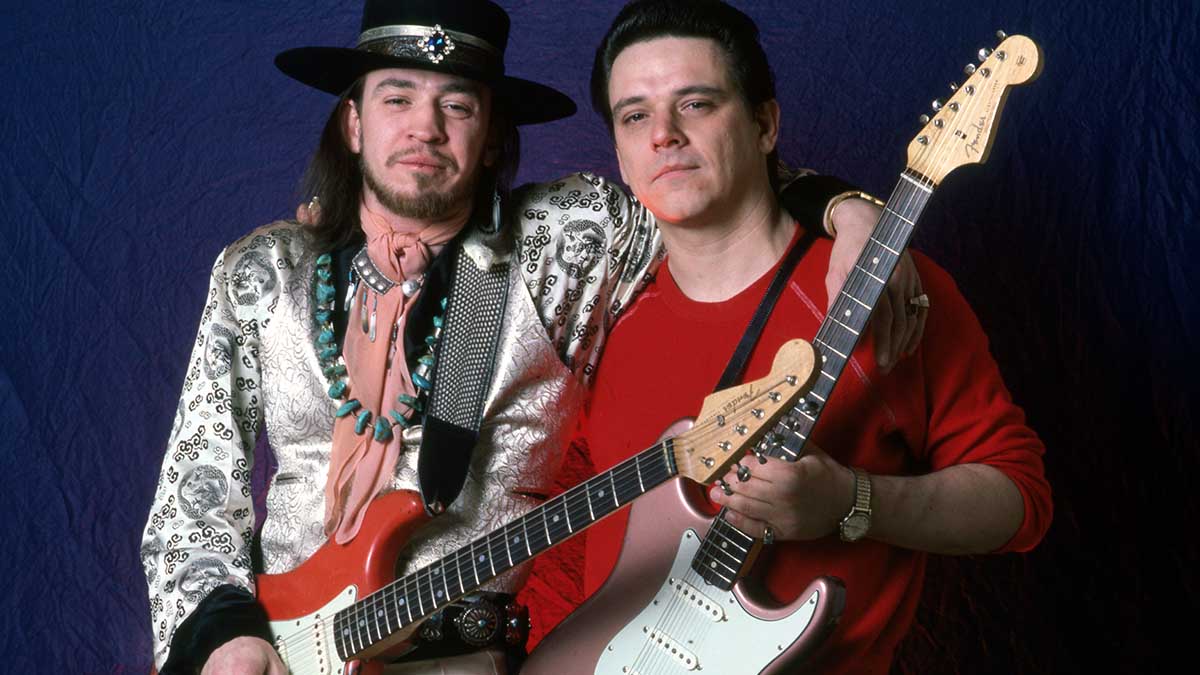
New generation
“Gary Clark Jr is fantastic. He’s a great songwriter, a fabulous singer; he can play so many things. I first met him when he was 14. He came down to the Antone’s club in Austin – his parents brought him there, got him in – and then Clifford [Antone, owner] said, ‘There’s this kid here, he’s supposed to be really good.’ We were like, ‘Get him up!’ And that was Gary Clark, before he got tall, y’know? You heard it immediately. You just knew – this kid’s got it.”
Getting better all the time
“I think you get better and better with your approach on guitar. You learn the technique when you’re young and muscular, but the best thing is just to keep doing it. Play every day. I think your overall approach to ad-libbing gets better as you get older. That’s just life.”
My back pages
“I’m really happy this new boxset is coming out. Records are neat, aren’t they? That’s what I started out with and I still have a jukebox in my living room. There’s just something about having music that’s not digital. I don’t know how to explain it.
“It’s like, I love cars from the '30s, '40s and '50s. I’m 70 years old and I’m fortunate that I just do what I want. A lot of times, I don’t pay a lot of attention to what everyone else is doing.”
The next chapter
“There’s so much music on this boxset that I haven’t had a chance to absorb it yet. It’s just a trip to sit back and listen to all that stuff. But what I’ve got going on right now is what I’m thinking about.
“I’ve got some gigs coming up and I’ve got a great band. I just want to play and play and play. I want to make more albums and I want to write more songs. I don’t see any reason to slow down. I’m going to keep playing until I can’t play any more, I guess.”
- The Jimmie Vaughan Story is available now on Last Music Co.
Henry Yates is a freelance journalist who has written about music for titles including The Guardian, Telegraph, NME, Classic Rock, Guitarist, Total Guitar and Metal Hammer. He is the author of Walter Trout's official biography, Rescued From Reality, a talking head on Times Radio and an interviewer who has spoken to Brian May, Jimmy Page, Ozzy Osbourne, Ronnie Wood, Dave Grohl and many more. As a guitarist with three decades' experience, he mostly plays a Fender Telecaster and Gibson Les Paul.

